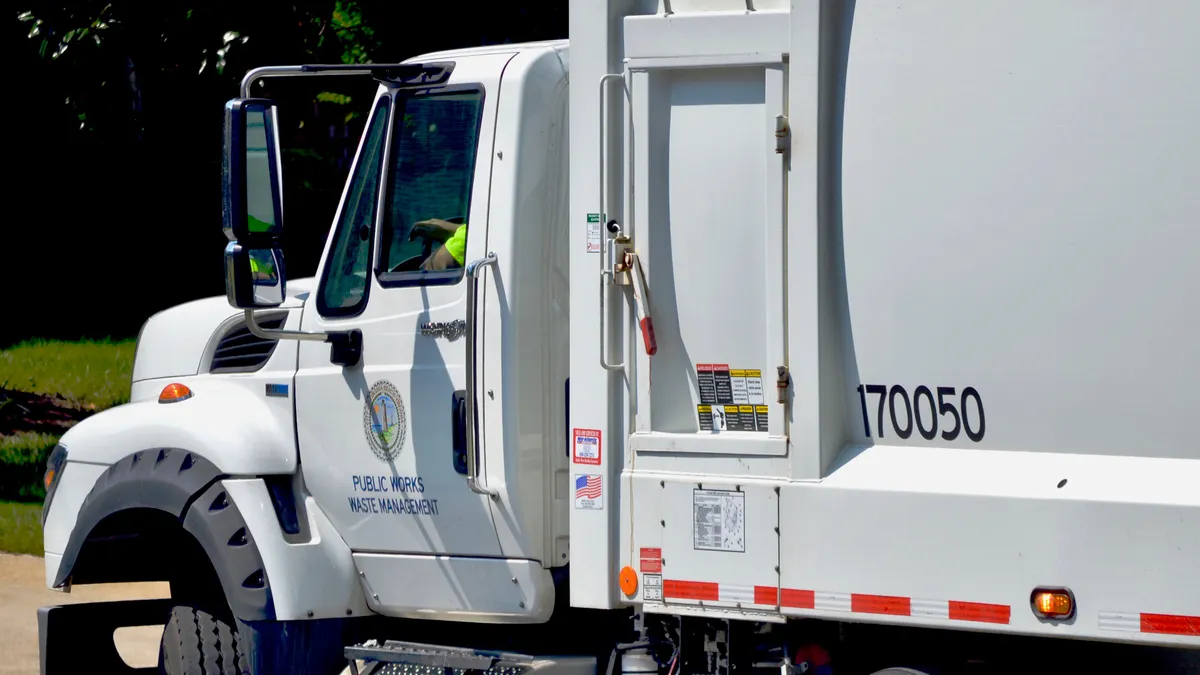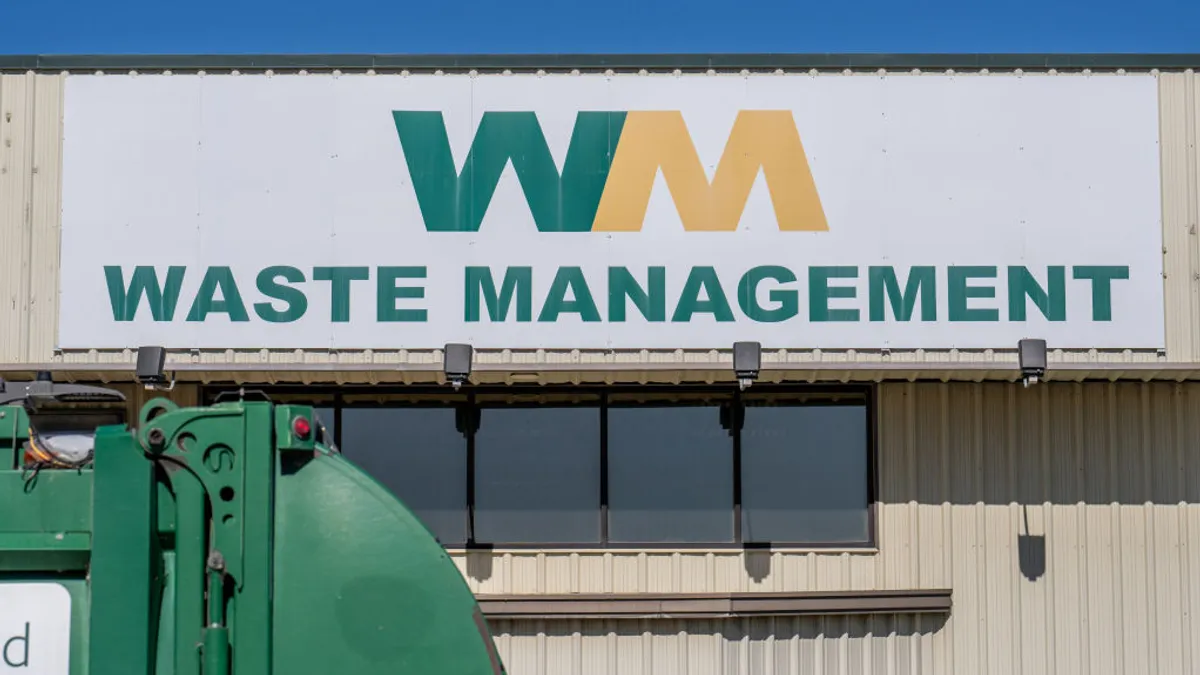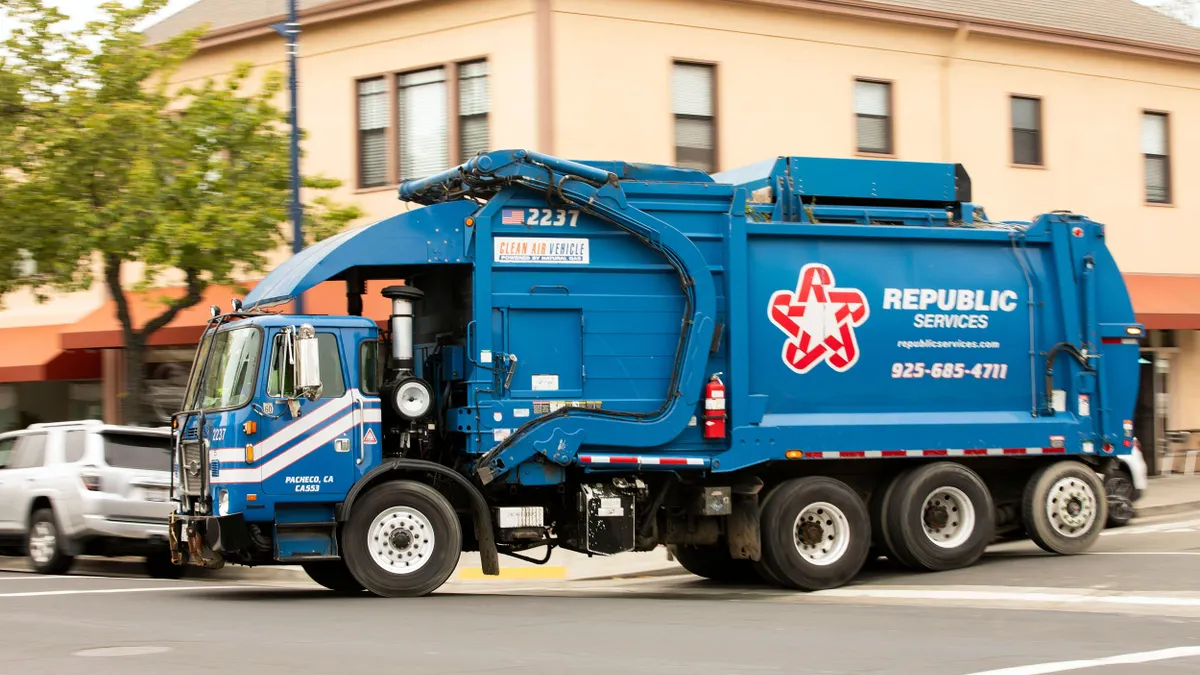In late August, over 100 sanitation workers from Virginia Beach's Waste Management department staged a one-day strike to demand hazard pay after they learned workers in the nearby Virginia cities of Norfolk and Hampton were receiving it. Within a week of the strike and despite early reluctance to meet the demands, the Virginia Beach City Council approved a measure that would provide $1,500 in hazard pay to each worker.
Calls for hazard pay in Virginia Beach reflect sentiments across the United States among municipal sanitation workers. In the wake of the pandemic, sanitation workers in Baltimore, Philadelphia, Milwaukee, Pittsburgh and New Orleans – who already face inherent dangers with the job – find themselves reframing long-time demands for a living wage as well as additional hazard pay.
Labor organizer Dante Strobino of UE Local 160, the union that represents Virginia Beach workers, has been campaigning for years to provide hazard pay and raise overall salaries for sanitation workers in the city. Workers in Virginia Beach have long-standing grievances with the city, as Virginia is one of the few states that bars municipal unions from collective bargaining. As workers fell ill from COVID-19, animosity toward the city grew this year. Knowledge that nearby sanitation workers were being given hazard pay led those tensions to boil over.
“From being compelled to work during the pandemic and putting their health at risk,” said Strobino, "to then learn that city workers in other neighboring cities were given a hazard pay bonus ... they were fed up and refused to load the trucks.”
The city initially received $78.6 million in federal coronavirus relief funding, $4.5 million of which was paid to public safety employees. Sanitation workers are classified as “emergency responders," making them ineligible to receive aid. After workers staged a one-day strike, the city voted to widen the net to include sanitation workers by drawing on money saved in recent hiring freezes. Other cities such as Miami are distributing hazard pay to non-eligible workers, including sanitation employees, by reimbursing themselves for eligible coronavirus relief expenses (like public safety pay) and then using a portion of that money to pay out hazard pay.
Virginia Beach denies it ever refused to provide hazard pay to the workers, and chalks up the dispute to a mere miscommunication.
“It was a combination of unclear media coverage, misinterpretations, and partial information received second or third hand,” said Communications Director Julie Hill. “Also, employees heard that other cities handled this hazard pay and recognition money differently and they didn’t understand the reasons.”
However, Strobino believes the city could have found a solution sooner than it would like to admit.
“Where there is a will, there is a way. If they wanted to pay these workers from the jump, they could have found a way sooner," he said.
Challenging conditions for essential work
The success in Virginia Beach offers a model other municipal sanitation workers are looking to emulate. In Philadelphia, workers have been demanding the city initiate a similar wage increase or hazard pay program for all frontline employees. Charles Carrington, president of AFSCME Local 427 said the union representing these workers has been fighting for hazard pay even before the pandemic, citing a 2019 case in which an oxygen tank explosion left a sanitation worker partially deaf.
“We deserve hazard pay before this pandemic, during this pandemic, and after this pandemic,” he said.
Many sanitation workers are Black, and Carrington pointed out the demand for hazard pay is a racial justice issue as well as an economic one.
The Economic Policy Institute released a report in June that found Black and Latino low- and middle-income essential workers, like sanitation workers, have been disproportionately excluded from receiving extra compensation during the pandemic – even though they have greater concern and likelihood of contracting the virus. According to report author Lawrence Mishel, a distinguished fellow at the institute, this disparity is a symptom of institutional racism as well the lack of power among many workers of color.
“It reflects their lack of bargaining power versus their employers, and reflects persistent discrimination," said Mishel.
The report also speculated that as cities struggle with high unemployment rates and economic turmoil, meeting the demands for hazard pay will only get more challenging.
“I don't think workers are compensated for risks even in the best of times,” added Mishel. “Now, with high unemployment, it is even harder to get.”
Philadelphia officials have cited their desire to pay workers a bonus, but say the current financial crisis makes it challenging.
“Any proposal for hazard pay — for the sanitation team or any City workers — would need to be supported with outside funding from state or federal sources,” said Kelly Cofrancisco, Philadelphia’s deputy communications director. “As with many other municipalities, Philadelphia is facing one of the greatest financial downturns the city has ever seen.”
The call for hazard pay comes as collection routes have become more challenging and delays have occurred around the country. In Philadelphia, according to the union, over 100 workers fell ill with COVID-19 and hundreds more called out due to safety concerns or pandemic-related issues.
“For a couple of months we were behind on pickups, but the reason why was that employees were contracting COVID-19 and we were doing some tracing so that affected our operations,” said Carrington. “Despite what some might think, we were not deliberately slowing down because we weren’t getting hazard pay. We would not hold this city hostage because of a pandemic.”
Jesse Maxwell, advocacy and safety senior manager of the Solid Waste Association of North America, agreed conditions have been difficult.
“The industry has had to deal with COVID-19 similarly to how every other industry has to do. There are cases of workers who are ill or had to take care of a loved one," he said, citing ongoing staffing challenges.
In addition, with so many more people home because of the pandemic, the increased volume of residential waste has left workers overwhelmed and struggling to catch up.
“One of the things we have seen since the pandemic is an increase of residential waste, especially in the beginning when we saw an increase up to 35% in the amount of trash that was being put out,” said Maxwell. “When you have the same number of workers and the same amount of trucks it’s going to take more time to collect.”
Looking ahead
With negotiations over a new federal stimulus bill in a constant state of turmoil, another round of funds for struggling municipalities is nowhere in sight. To cope with the increased trash volume, as well as chronic staff shortages, some cities are considering tapping into remaining coronavirus relief funds to distribute hazard pay as an incentive to retain their workforce.
In Baltimore, where city employees temporarily refused to return to work after a coronavirus June outbreak at a sanitation yard, frustration has spurred two local lawmakers into action. Citing a concern over collection delays – with some residents going weeks without trash pickups and recycling service temporarily suspended – Councilmembers Zeke Cohen and Yitzy Schleifer penned a letter urging Mayor Jack Young to use federal relief funding to give sanitation workers a $5,000 bonus and consider giving them a $4 hourly raise.
“When you treat your workforce like garbage, it disincentivizes them from working really hard,” said Councilmember Cohen. “Especially when they are taking on additional risks by being out there.”
The idea has garnered general support from some other officials, including Baltimore City Council President (and Democratic nominee for mayor) Brandon Scott, who has signaled his willingness to support such a measure. Mayor Young's office didn’t respond to a request for comment, but the administration recently said it is reviewing a previously commissioned worker pay study.
Cohen said the city still has $50 million left from federal relief funds that could easily cover the cost of paying workers hazard pay, which he estimates would be around $750,000.
“What’s shameful is that we pay some of our temporary workers as little as $11 an hour. That’s just unbelievable given how dangerous, dirty, and sometimes just disgusting of a job it can be," he said. "We are not valuing the workers.”


















